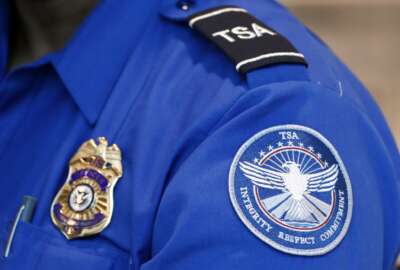Sorry, but what Hillary did was in no way ‘allowed’
Hillary Rodham Clinton's email problems are one in a string of examples of senior officials not following the rules governing records. Clinton's problems give m...
I swore I wouldn’t write about Hillary Rodham Clinton and the email server. So I’ll just write about email. What better time for existing and future political appointees to think carefully about how they will respond, when they’re entrusted with sensitive, classified and national security material.
And I want to acknowledge the millions of federal employees who practice care in how they handle sensitive, classified and even routine federal information. They don’t do business on private accounts, use hidden servers, erase their machines or have their lawyers take computers to have them erased professionally.
Clinton said on TV, “there was no law, there was no regulation” for how she chose to communicate. But there was. On the Federal Drive, I asked attorney Larry Youngner, the managing partner and chairman of the national security law practice group at Tully Rinckey, about the existing laws. He cited Executive Order 12356, for example. Also the requirements that those with a security clearance have training in the handling — and storage — of classified and sensitive material. Youngner noted section 36 of the Code of Federal Regulations covers information and records management.
Clinton isn’t the first to transgress what are clear laws and regulations about handling and storage of such material. I understand when you’re appointed and at the top of an agency it can go to one’s head that a bubble exists around you, shielding you from some of the inconveniences the regular people endure. Chauffered cars, private discretionary funds, and the occurrence of sycophancy can do that to anyone.
Remember Scott Bloch, the Special Counsel during the administration of President George W. Bush? He was under fire for alleged whistleblower retaliation and harrassing Office of Special Counsel employees. One of the damning things that came up during the sordid saga was how Bloch had Geeks on Call come in and erase his federal notebook PC then re-erase it — seven times. Things ended badly when Bloch was sentenced to a day in prison.
Think back to John Deutch, a long-serving and distinguished public servant. After he left the CIA directorship, it came to light that he’d done classified work on computers at home. Apples, if I recall correctly. He ended up pleading guilty to a misdemeanor, as President Bill Clinton protected him from federal criminal prosecution.
The previous EPA administrator, Lisa Jackson, was caught doing federal business using an alias, Richard Windsor. She was hit with charges of doing so to avoid open-records laws. According to several published reports, Jackson completed several online training modules using her alias.
I’m glad that in all these cases, a fuss ensued. I have an abiding belief that when leaders, those in authority, flout the rules and norms of an organization, they also plant the seeds of cynicism. If the rules aren’t for everybody, then they apply to nobody. During the interview, Youngner says someone in the rank and file who witnesses mishandling of federal information or property has the obligation to report it. As we’ve seen in so many agencies hit with scandal — IRS, Veterans Affairs, State Department — it often takes whistleblowers to bring managerial problems to light. The corollary truth says that, no matter what whistleblower laws exist, it still takes courage and willingness to risk job and reputation to actually blow the whistle.
The State Department email issue will continue with more Congressional and judicial hearings. The clear reality has become intertwined with politics because Clinton is a presidential candidate. But the case presents a good opportunity for managers at all agencies to take a closer look and make sure everyone, top to bottom, handles and stores information in the right way.
Copyright © 2024 Federal News Network. All rights reserved. This website is not intended for users located within the European Economic Area.
Tom Temin is host of the Federal Drive and has been providing insight on federal technology and management issues for more than 30 years.
Follow @tteminWFED







